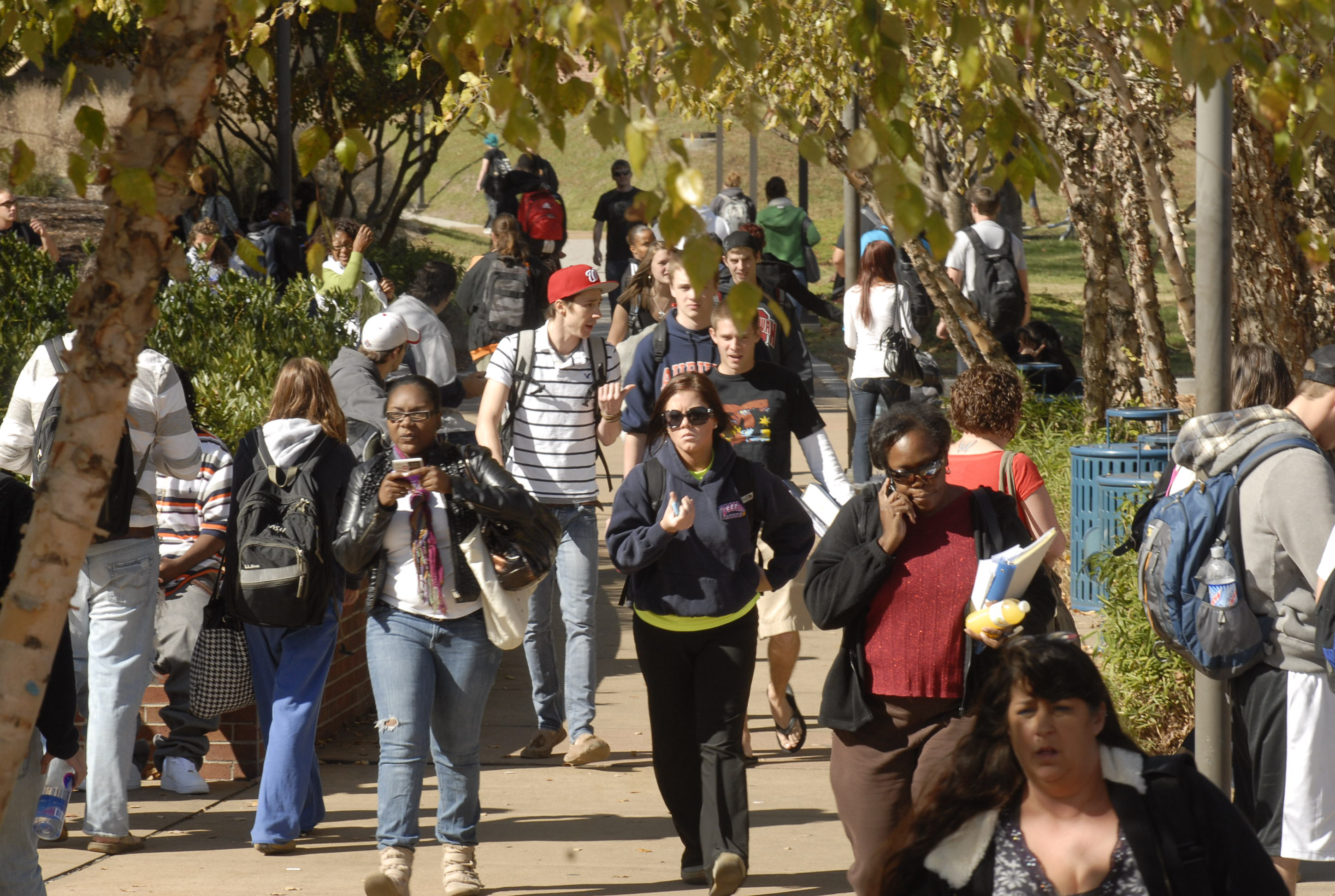FEW STUDENTS READY FOR COLLEGE* Nationwide, nearly 30 percent of students don't finish high school.* The dropout rate among blacks, Hispanics and low-income students is nearly 50 percent.* Only 42 percent of young people who enroll in college complete a bachelor's degree by the age of 26. Just 12 percent complete an associate degree.* By 2018, 63 percent of all U.S. jobs will require some sort of postsecondary education.* In 2008, the average wage for adults 25 and older with a four-year degree was $60,954, compared to $33,618 for those with only a high school diploma and $24,686 for those with no high school diploma.* Nearly 22 million new workers with postsecondary degrees will be needed by 2018, but it is estimated that the U.S. higher education system will fall short of that mark by 3 million graduates.Source: Next Generation Learning's website
ON THE WEBhttp://nextgenlearning.org/
Chattanooga State Community College is leading a national project to increase student success in developmental math courses with help from a grant.
Nearly 8 out of 10 community college freshmen statewide and nearly half of university freshmen require remedial work because they aren't ready for college-level work, according to the Tennessee Higher Education Commission.
Chattanooga State has been designated the lead institution to help two other colleges redesigning their developmental math sequence by incorporating technology to increase student engagement and learning, according to John Squires, head of the math department at Chattanooga State.
As part of the effort, "Do the Math! Increasing Student Engagement and Success," Chattanooga State also will open a 185-computer math lab this fall - possibly the nation's largest among two-year schools, said Squires.
The goal of the project is to use technology to provide more individualized assistance so students can work at their own pace, he said.
Chattanooga State, together with Jefferson Community and Technical College in Kentucky, University of Hawaii - Maui College in Hawaii and Education Trust in Washington, D.C., received $249,700 total from Educause, a nonprofit association whose mission is to advance higher education, for the project.
The grant is part of a national program, Next Generation Learning Challenges, a collaborative, multiyear initiative created to address the barriers to educational innovation and tap the potential of technology to dramatically improve college readiness and completion in the United States, according to its website.
Chattanooga State was among 29 institutions selected, out of 600 applicants, for the first wave of grants, Squires said.
"It's a great opportunity for Chattanooga State to take the lead in trying new things," Squires said.
Close to 80 percent of first-time, full-time community college freshmen in 2010 and almost 47 percent of university freshmen required developmental studies support, according to the Tennessee Higher Education Commission.
And students who take remedial classes - even if it's only one - have higher drop-out rates and lower graduation rates than those who don't, according to Tennessee Board of Regents data.
"Historically, a lot of students get frustrated with developmental studies and it serves as kind of a barrier, where they can be in developmental studies for a year or more," Squires said. "We want to set up a program that is going to help them be successful and making it into the college-level courses and graduate."
Chattanooga State's program has proven to be a "national exemplar for innovation approaches to teaching math," said Paula Myrick Short, vice chancellor for academic affairs for the Tennessee Board of Regents.
Across the hall from its new computer lab, Chattanooga State will have five computer classrooms with 24 computers each.
The college used about $100,000 of the almost $250,000 grant for its new lab, but the cost of the lab is "well over the $100,000," Squires said.
"The college is having to make a commitment to the project as well," Squires said.
An exact figure could not be provided by deadline because expenses come from different budgets, he said.

